SUNDAY PROFILE: Dorothy Edwards uncovers Lismore's lost corner shops
Liina Flynn
01 August 2020, 7:47 PM
 Ted Butler and his sister Elsie Helmood owned this shop on the corner of Ballina and Rous Road from the 1950s to the 1970s. In 1979, it was closed and relocated to make way for the new roundabout and a four-lane highway.
Ted Butler and his sister Elsie Helmood owned this shop on the corner of Ballina and Rous Road from the 1950s to the 1970s. In 1979, it was closed and relocated to make way for the new roundabout and a four-lane highway.Eating musk sticks, mint leaves, red frogs, freckles, milk bottles and cobbers have long been part of the culture of growing up for Australian children.
While these days most kids buy their lollies in plastic bags from the supermarket, it wasn't so long ago that to get a sugar fix, all they had to do was take a short walk to the local corner shop. Just a few cents was enough to buy a handful of colourful lollies, all on display behind the glass counter in cardboard boxes.
Choosing which ones you wanted was often the highlight of the day, as was watching the shopkeeper put them into a paper bag and then deciding which one to eat first. In the 1980s, lollies cost about one cent each, but in the 1950s and 60s, lollies were 12 for a penny.
Sadly, these days the local corner shop has all but disappeared, replaced instead by big supermarket chain stores and shopping centres. In Lismore used to be about 70 corner shops, but sadly, most have now closed.
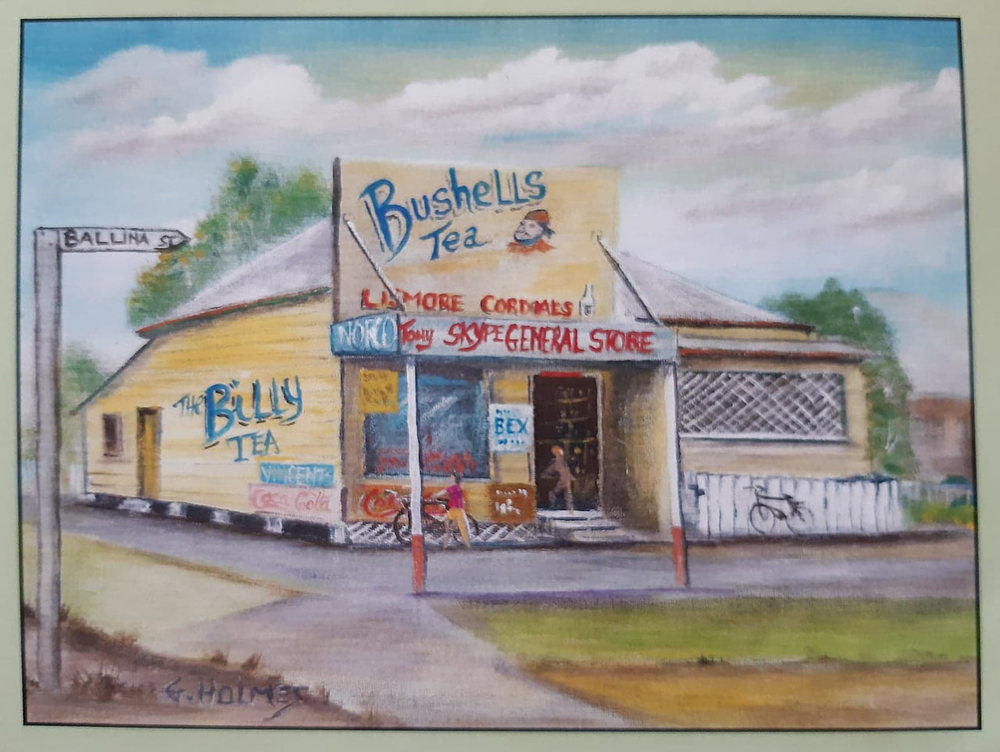
Lismore's Corner Shops
Documenting the history and the demise of these local shops has been taken on by a dedicated history lover, Dorothy Edwards. Dorothy grew up in Lismore and spent the six years compiling stories for a book called Lismore's Corner Shops.
"These corner shops were a part of daily life," Dorothy said. "They were set up in the front of people's houses and were mainly run by women, bringing in supplementary incomes to their husbands' wages."
"I remember when I was a kid, I would go in and buy a hapenny's worth of lollies or a penny ice-cream. We were often sent to the shop for a packet of Sao biscuits and if I lost the shilling to buy them with, I'd get a talking to. I loved musk sticks and was allowed to buy lollies with the tuppence change."
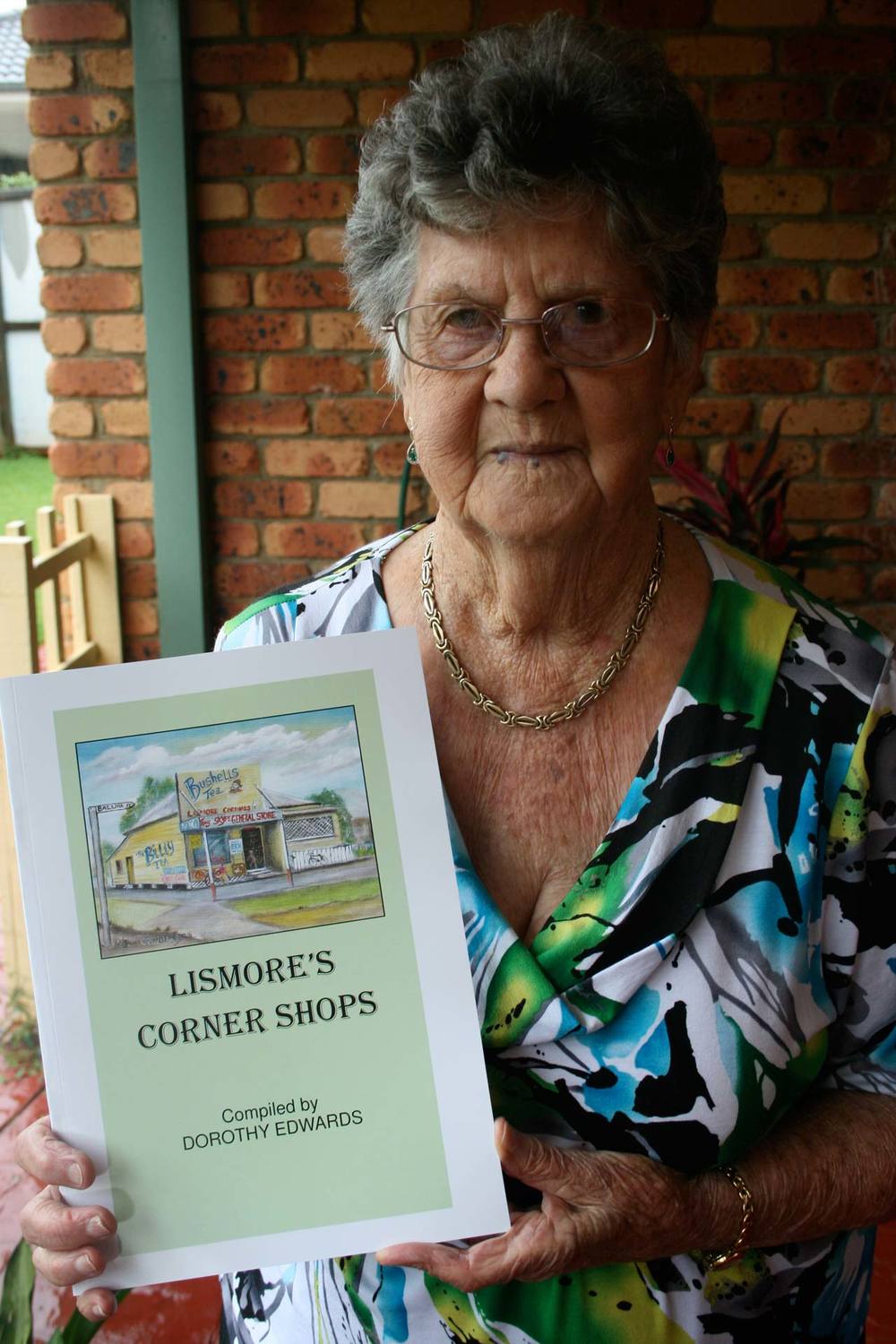
Dorothy Edwards.
In the era before telephones, Dorothy remembers corner shops as the hubs of the community, where people would leave messages for each other with the shopkeeper. These were days when few people had cars and would walk to the local shop to get any ingredients they had run out of.
"One shop had a customer who would come in every day at 10 to 12 and buy three slices of devon sausage for lunch," Dorothy said.
While some people would buy everything at the corner shops, most of the main shopping was done at the larger stores such as Mewings, McLeans or AG Roberts. Customers would place their weekly or monthly orders, which would then be delivered to their homes.
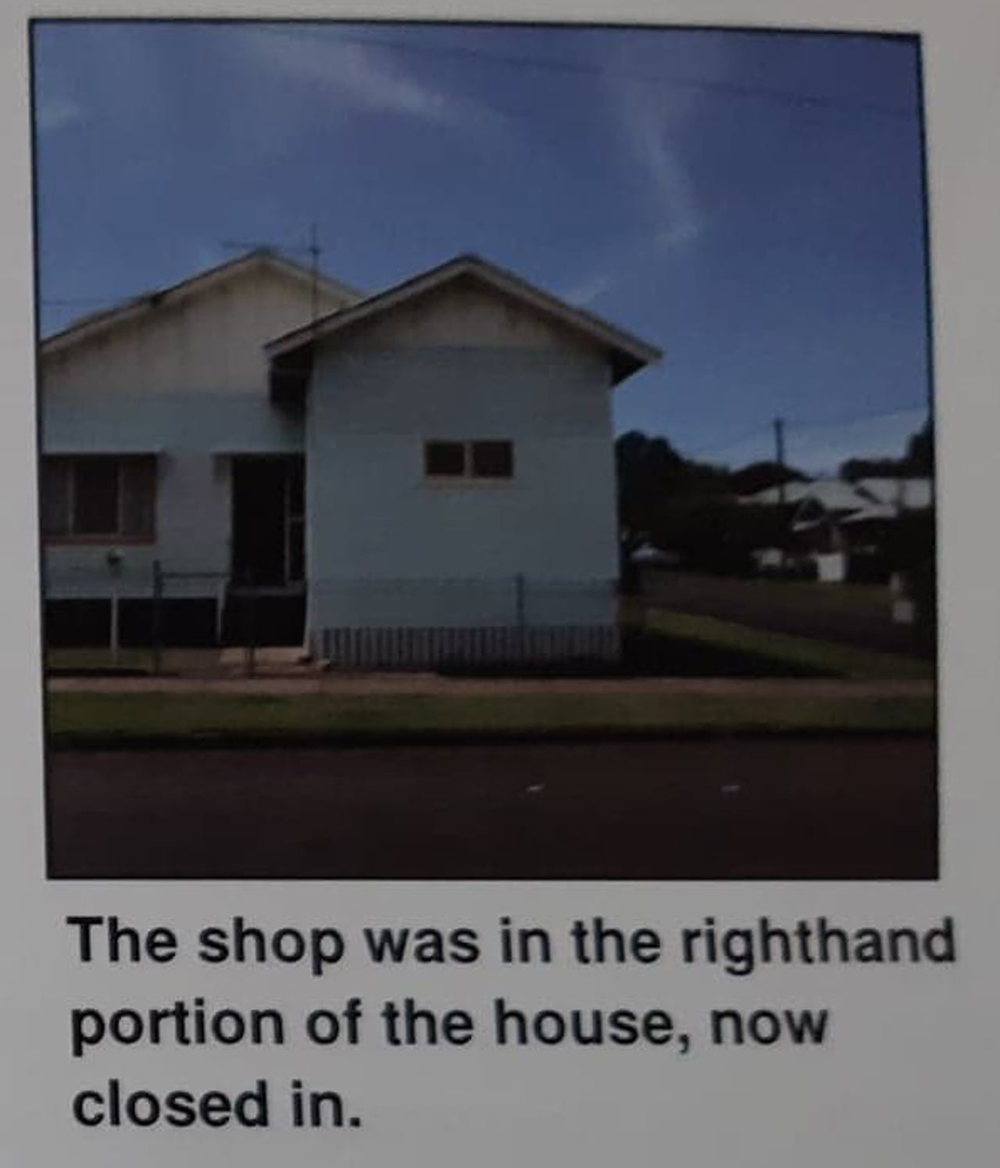
Shop at 12 Second Avenue.
Shopkeepers
"Going through the histories I collected made me aware that shopkeepers looked after the community and kept an eye on the kids," Dorothy said. "One woman told me she taught them how to be respectful and have manners… and also taught them maths by teaching them how to count pennies."
Throughout the 1900s, running a corner shop was a family affair and work days were long, with families often working seven days a week from 7am until 7pm. The women made cakes and pies to sell in the shops and Dorothy remembers being lucky if she got a real ice cream, instead relying on the shopkeeper's home-made square ice-blocks as a staple.
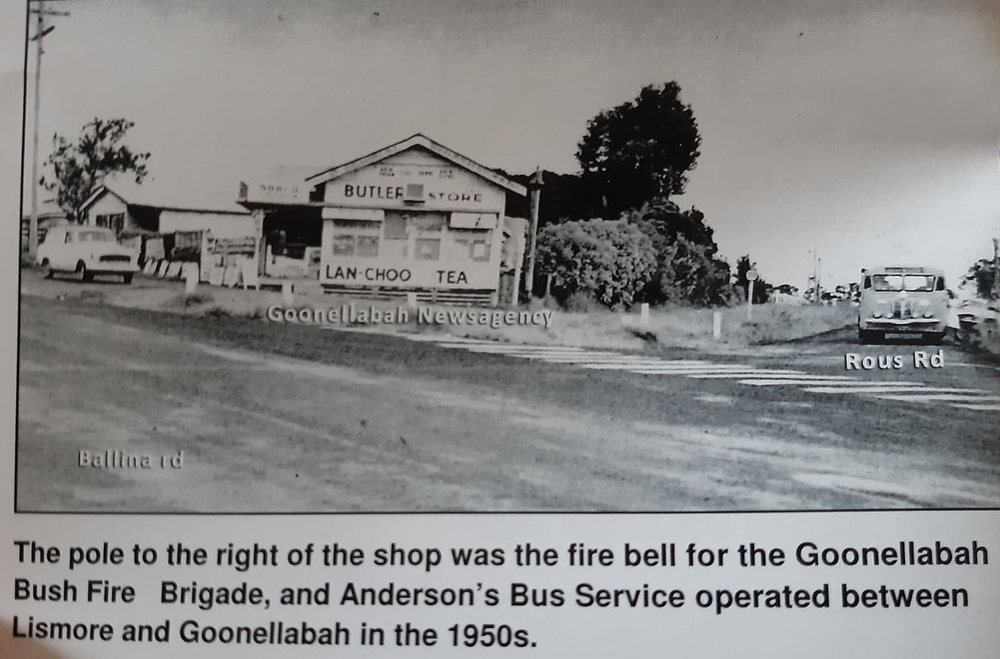
Corner of Ballina and Rous Roads.
Ice cream
Flavours included fruit salad, milk and date, and chocolate and they were served wrapped in a piece of paper for the cost of a penny.
"People would bring in their empty Lismore cordial bottles to the shops and get sixpence for them," Dorothy said.
"Arnott's biscuits came in big tins and were weighed up and sold to customers in paper bags, and broken biscuits were sold at discounted prices. Wholesale ice creams, milk and small goods were all sourced from Norco."
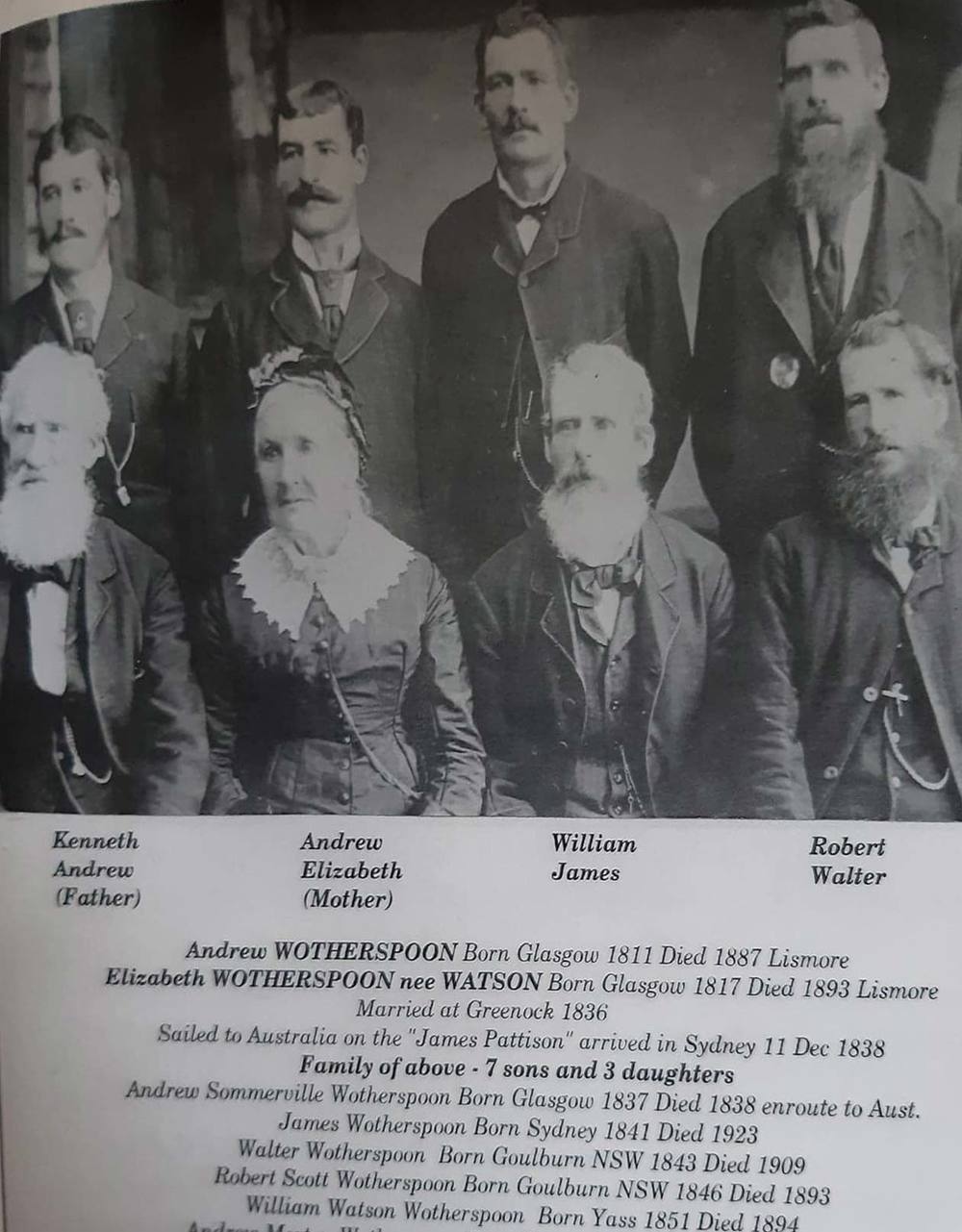
Wotherspoon family
Wotherspoon family
Dorothy's interest in corner shops was in her blood. Her grandfather Andrew Wotherspoon used to own a shop in Zadoc Street, close to Molesworth Street.
Her interest was sparked when she found an article in The Northern Star from 1920 that related a story about her father, James Wotherspoon, who was rowing up the river one day and pulled in so he could go into his grandfather's store for a cool drink.
Menin's
Menin's, a shop which finally closed down last year (after being re-branded as Foodworks) in Leycester Street, was started by Mrs Gray and was known as a tuck shop for the nearby Catholic school (now Trinity College). In 1937 it was taken over by Mrs Cusack, who looked after it with the help of her daughters while her husband went off to work.
Many of these shop owners relied on their children to look after the shop before and after school. In one shop, the eldest boy would put his younger brother to bed and then go into the shop to weigh up flour and potatoes out of sacks, into one pound brown paper bags for the next day.
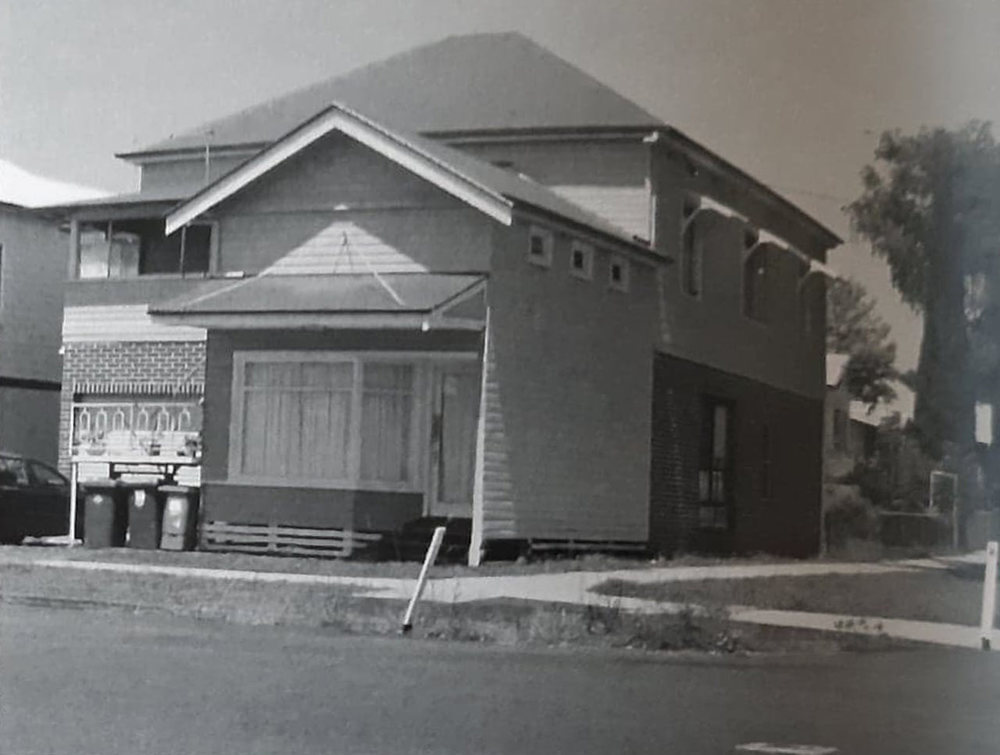
Corner of Keen and James Street.
Long hours
For some of these female shopkeepers, eventually selling their businesses was like "getting out of jail". The long hours with no holidays took their toll on them and their families - many of them were often unable to attend school plays and other events during work hours.
One industrious entrepreneur who started a successful Lismore corner shop in the early 1900s was Mrs Tucker.
"She came out on a boat in 1910 and did mending for sailors who paid her in tinned goods," Dorothy said. "When Mr Tucker couldn't find work, she opened a shop at 25B Keen Street and sold the collected canned goods. They made enough money from the shop to by a block of land on Orion Street and build a house."
While few of these shops are still in business today, the presence of these old houses can still be seen in the local landscape. Some of them have been relocated or raised up above flood level and are still in use as residences for local families, and some still have their distinctive shop verandahs stretching over the sidewalk.
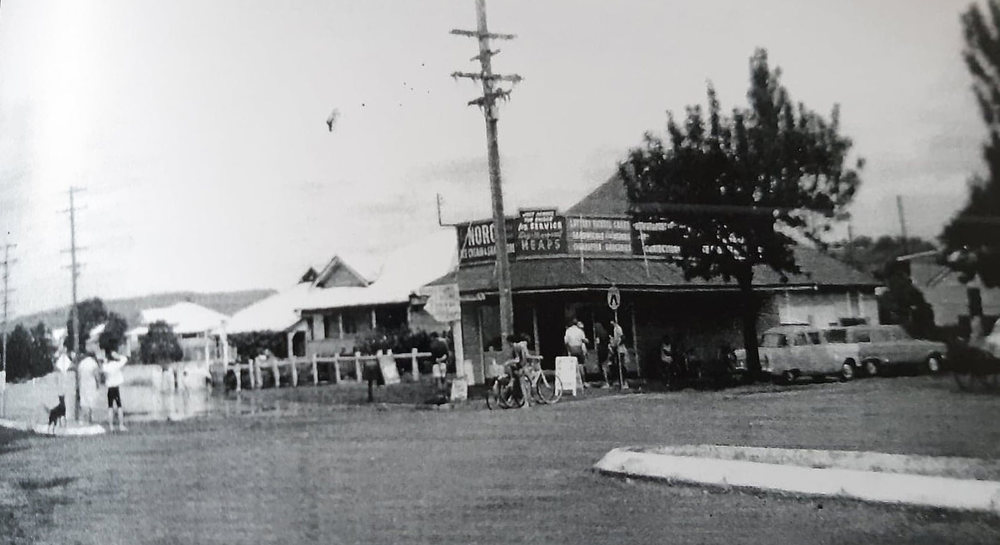
135 Union Street, South Lismore.
Keen Street
Thanks to Dorothy's research, we know that there used to be at least three corner shops on Keen Street, six on Wyrallah Road and four on Terania Street, and the corner shop on High Street closed in 2011. None of them could keep competing with the giant supermarkets.
"It's a pity this personal, everyday history is being lost," Dorothy said. "Shops are totally different today… in my day, ice blocks were one of the staples for a kid, now it's chips. I'd like to think in 200 years at an antiques roadshow, people will ask 'what's this book?'… it's a record of a long-gone history."
CAFE'S & RESTAURANTS
